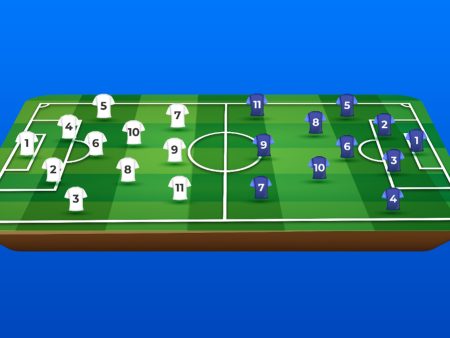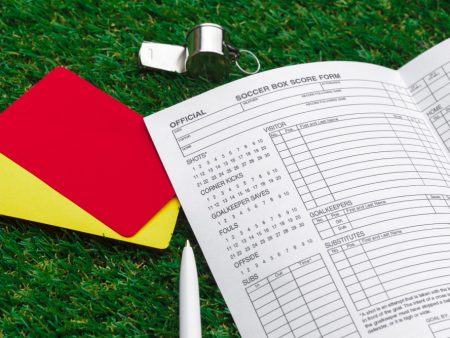
When 90 Minutes Just Isn’t Enough: Here’s What Happens Next
You’ve just watched 90 minutes of a thrilling football match. The score is level. Tension’s rising. The whistle blows, but it’s not over yet. Welcome to the high-drama, last-chance saloon of extra time in football. Whether it’s the World Cup final, a Champions League semi, or a tense cup tie under the floodlights, extra time is where legends are made and hearts are broken.
This guide isn’t just about how long is extra time—it’s about what it really means, how it works, and why it matters. We’re digging into the rules, the drama, and the tactical chess match that unfolds when regulation time ends and the stakes reach boiling point. From stoppage time to golden goals, this is the full story of extra time in soccer.
What Is Extra Time in Football?
In football, extra time refers to the additional 30 minutes played when a match ends in a draw and a winner must be determined—usually in knockout competitions like the Champions League, World Cup, or Euro. Unlike stoppage time, which compensates for delays like injury or substitution, extra time is a whole new phase of play.
It’s typically split into two 15-minute halves, with a short halftime break. If the score is still tied after extra time, the game moves to a penalty shootout to decide the winner. The drama is immense—every touch of the ball could be decisive.
How Long Is Extra Time in a Football Match?
Extra time lasts 30 minutes, divided into two 15-minute halves. That’s a full half hour of nail-biting football after the standard 90 minutes of regulation time.
There’s no added time within extra time itself unless there are serious delays like injuries or VAR checks. But as fans know, even a few seconds can shape the entire outcome. When extra time would decide the fate of a tournament, every tick of the clock matters.
What Are the Official Added Time Rules?
The official extra time rules are set by the body of football, FIFA, and other governing bodies like UEFA. Once regulation time ends in a draw during knockout games, a short team talk follows—then comes extra time.
The rules state:
- It’s split into two 15-minute halves.
- No 15-minute break like at half time—just a quick team switch.
- If the match is still tied after extra time, it goes to a penalty shootout.
- A maximum of six substitutions are allowed in major tournaments, including one during extra time.
This system is standard across football, from the Copa America to the European Championship.
When Is Extra Time Played in Football?
You won’t see extra time in your average league fixture—only in matches where a winner must emerge. Think:
- World Cup finals or semi-finals
- Champions League knockouts
- Domestic cups like the FA Cup or Coppa Italia
If the scores are tied after 90 minutes and the format demands a result, then the drama of extra time in football kicks off. In some competitions, like certain Copa America or Euro matches, organisers might skip extra time and go straight to penalties. But in most high-stakes tournaments, those 30 extra minutes are sacrosanct.
Is Stoppage Time the Same as Extra Time?
Absolutely not—though it’s a common mix-up. Stoppage time (also known as injury time) is the additional time the referee adds at the end of each half to account for delays like:
- VAR checks
- Goal celebrations
- Substitution delays
- Time-wasting
- Injury
This is not part of extra time, which is an entirely new phase of play used only when the match can’t end in a draw. Stoppage time is a regular part of the 90 minutes, while extra time comes after.

What Happens If the Game Is Still Tied After Extra Time?
Simple: it’s time for the dreaded penalty shootout. When even extra time can’t separate two sides, this final tiebreaker takes centre stage. Each team takes five penalties, and if things are still tied, it goes to sudden death.
The drama? Off the scale. From coin tosses to goalkeeping heroics, this is where winners are crowned and hearts are shattered.
What Was the Golden Goal and Silver Goal Rule?
Once upon a time, football tried to spice up extra time with something called the golden goal and silver goal. The golden goal rule—introduced by FIFA in 1993—meant that the first team to score during extra time won the match instantly. Sudden death in its rawest form.
The silver goal followed: if one team was ahead at the end of the first 15-minute half, the game would end there. Both concepts flopped due to negative tactics and were scrapped by 2004. Still, they’re part of football folklore and shaped how we view extra time rules today.
How Did Extra Time Begin in Football History?
It all started in 1897, when football authorities faced a dilemma: what to do when a crucial match ended in a draw. The solution? Add more time.
Early versions saw games being replayed, but the idea of a fixed 30-minute extension eventually took hold. The 1968 European Championship saw one of the first major uses of modern extra time, when Italy faced the Soviet Union. The match ended in a draw even after extra time, leading to a coin toss. Yes—a coin toss decided who advanced. Talk about drama. That’s why today’s extra time system—flawed or not—is still better than flipping a coin.
How Does Extra Time Affect Football Bets?
For punters, extra time adds a layer of complexity. Most bet markets—like final result or goal scorers—refer only to the 90 minutes of regulation time plus stoppage time.
So if you back a team to win the match and they do it in extra time, it often doesn’t count. Always read the small print.
There are, however, markets that specifically include extra time in football, such as:
- To win in extra time
- To qualify
- Total goals including extra time
Smart betting starts with knowing the rules.
What Is the Role of the Referee in Extra Time?
The referee controls extra time just like the rest of the match. They:
- Signal the start and end of both 15-minute halves.
- Add time for injuries or stoppages if needed.
- Monitor substitutions and ensure goal rules are followed.
There’s usually less stoppage time in extra time, but the ref still has discretion. And with VAR now in play, delays—though often frustrating—are part of the deal.
Which Famous Games Were Decided in Extra Time?
Some of football’s greatest moments happened in extra time:
- World Cup 2014 final: Mario Götze scores in extra time to give Germany glory.
- Champions League 2005 final: Liverpool equalise, then win on penalties.
- Euro 2000 final: France beats Italy with a golden goal.
These matches prove that extra time isn’t just about endurance—it’s where heroes rise and scripts flip.

Key Takeaways on Extra Time in Football
- Extra time is a 30-minute phase played after 90 minutes if a match ends in a draw.
- It’s split into two 15-minute halves, with a short break in between.
- If the game is still tied, it goes to a penalty shootout.
- Extra time rules differ from stoppage time, which is part of normal time.
- Not all competitions use extra time—some go straight to penalties.
- The referee controls all timing, substitutions, and delays.
- Golden goal and silver goal rules were experimental formats now abandoned.
- Most football bets exclude extra time, so read terms carefully.
- Famous tournaments like the World Cup, Euro, and Champions League often feature iconic extra time in football moments.
Whether you’re a die-hard fan, a casual viewer, or placing a cheeky bet, understanding how long is extra time in a football match gives you the full picture of the sport’s most dramatic moments.
Because in football, the final whistle isn’t always the end.










